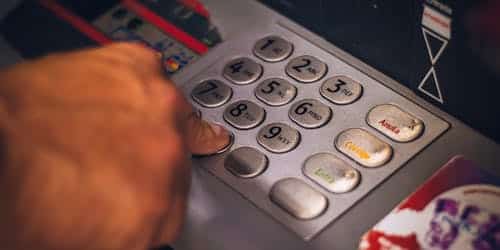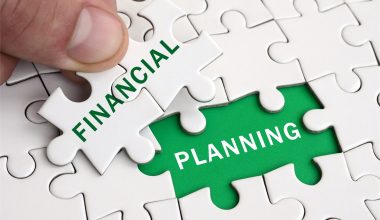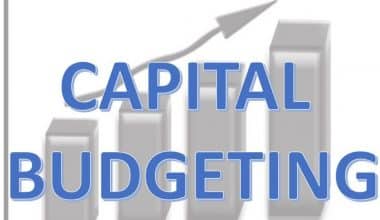Ever wondered where you can stash your money, watch it grow, and not have to worry about someone calling you every day to buy land or start a side hustle? That’s where the fixed deposit account comes in. It’s not the most glamorous way to grow your cash, but it’s safe, predictable, and steady—like that reliable friend who never gets into trouble. Whether you’re saving for a rainy day or just want to park your money somewhere secure, a fixed deposit account might just be the ticket.
In this guide, I’ll break down everything you need to know about fixed deposit accounts, from the features to why you should consider opening one and how they work. Let’s dive right in.
Key Points
What is a Fixed Deposit Account?
A fixed deposit (FD) account is a financial product offered by banks and financial institutions where you can deposit a lump sum of money for a fixed period at a predetermined interest rate. Once you place your funds in an FD account, you cannot withdraw them until the agreed-upon term (known as the maturity period) is over. The fixed interest rate ensures that your money grows without being affected by market fluctuations.
You can open a fixed deposit account for varying durations, from as short as 30 days to several years, depending on the bank or institution. Unlike regular savings accounts, where the interest rate can fluctuate, the interest rate in an FD remains the same throughout the deposit term, which guarantees a certain return on your investment. The beauty of fixed deposits lies in their simplicity and stability. You know how much you’ll earn at the end of the term, and there’s very little risk involved. It’s a preferred choice for people who want a low-risk investment with assured returns.
Features of a Fixed Deposit Account

Fixed deposit accounts offer several unique features that make them a popular choice for savers. Here’s what you need to know:
#1. Fixed Interest Rate
The interest rate in a fixed deposit account remains the same throughout the deposit term, regardless of market conditions. This gives depositors peace of mind, knowing exactly how much they will earn.
#2. Fixed Tenure
The tenure of an FD can range from a short period of 30 days to long-term periods of up to 10 years. The longer you leave your money in the account, the more interest you earn.
#3. Minimum Deposit Requirement
Most banks have a minimum deposit amount required to open a fixed deposit account. This amount can vary, but it’s typically affordable for most savers. Some banks may require as little as ₦50,000, while others may ask for higher amounts.
#4. Premature Withdrawal Penalty
Although FDs are designed to keep your money locked in for a set period, many banks allow premature withdrawals. However, withdrawing before the maturity date usually results in a penalty, which could mean losing some of the interest or even a portion of the principal in extreme cases.
#5. Interest Payment Options
Depending on the bank and the specific FD plan, interest can be paid out either at the end of the tenure or on a periodic basis, such as monthly or quarterly. This makes it flexible for those who may need a regular source of income.
#6. Loan Against Fixed Deposit
Some banks offer loans against the amount in your fixed deposit. This is especially useful when you need funds but don’t want to break your FD and lose the benefits of long-term interest accumulation.
Why Should Anyone Open a Fixed Deposit Account?
You might be wondering, with so many investment options available, why should anyone consider opening a fixed deposit account? The answer lies in its stability, predictability, and low risk.
- Guaranteed Returns
With a fixed deposit, you know exactly how much you’ll get back at the end of the tenure. This makes it an ideal option for individuals who prefer safe and predictable investment returns.
- Low-Risk Investment
Unlike stocks, cryptocurrencies, or mutual funds, fixed deposits are virtually risk-free. The principal amount is protected, and you’re not exposed to the volatility of the market.
- Ideal for Short-Term and Long-Term Goals
Whether you’re saving for a short-term goal, like a vacation or a major purchase, or a long-term goal, such as retirement, a fixed deposit account can help you reach your objectives without worrying about market fluctuations.
- Diversification
If you already have other forms of investments, such as stocks or real estate, adding a fixed deposit account can diversify your portfolio and provide a safe cushion against high-risk assets.
- Easy to Manage
Fixed deposits require little to no maintenance once set up. You don’t need to constantly monitor your investment as you would with stocks or mutual funds. Simply put your money in and let it grow.
Who Needs a Fixed Deposit Account?
While fixed deposit accounts can be a great option for anyone, they are especially useful for:
#1. Risk-averse Investors
If you’re the type of person who doesn’t want to lose sleep over market fluctuations, an FD is perfect for you. It offers guaranteed returns with no surprises.
#2. Retirees
Fixed deposits provide retirees with a safe place to park their savings while earning a steady interest income. It’s particularly beneficial for those who cannot afford to take risks with their retirement funds.
#3. People Saving for a Specific Goal
If you’re saving for something specific, like a down payment on a house or your child’s education, a fixed deposit can help you reach that goal without being tempted to dip into the funds early.
#4. First-Time Investors
If you’re new to the world of investments, a fixed deposit can be a great starting point. It’s simple, straightforward, and gives you a sense of security as you dip your toes into the investing waters.
How to Open a Fixed Deposit Account
Opening a fixed deposit account is a straightforward process. Here’s a step-by-step guide:
- Choose a bank
The first step is selecting a bank that offers the best interest rate and terms for your fixed deposit. Most banks have a fixed deposit calculator on their websites, so you can compare rates and terms easily.
- Decide on the Tenure
Once you’ve chosen the bank, decide on the duration for which you want to lock in your money. Remember, longer terms often come with higher interest rates, so it’s worth considering how long you can afford to keep the money untouched.
- Provide Necessary documents.
You’ll need basic documents such as proof of identity (e.g., driver’s license or international passport) and proof of address (e.g., utility bill).
- Deposit the funds
Once the paperwork is sorted, you’ll need to deposit the amount into the FD account. Most banks have a minimum deposit requirement.
- Confirmation
After your funds are deposited, the bank will issue an FD receipt or certificate that outlines the amount, interest rate, and tenure. Keep this document safe, as you’ll need it when the FD matures.
How to Earn with a Fixed Deposit Account
Earning with a fixed deposit account is simple: the longer and larger your deposit, the more you’ll earn.
#1. Interest Rates
The interest rates on FDs vary depending on the bank and the tenure. Typically, the longer the tenure, the higher the interest rate. Some banks offer up to 10% interest on long-term fixed deposits.
#2. Compounding Interest
In some cases, banks compound the interest, meaning you earn interest on your initial deposit and on the interest that accrues over time. This significantly boosts your overall earnings.
#3. Tax Savings
In some countries, FD accounts are eligible for tax benefits, particularly for senior citizens. While Nigeria doesn’t currently offer tax deductions on FDs, it’s something to consider if investing abroad.
Banks That Offer Fixed Deposit Accounts
Almost every major bank in Nigeria offers fixed deposit accounts. Here are some popular ones:
#1. Access Bank
Access Bank is one of the largest banks in Nigeria, with a strong reputation for innovative banking products. When it comes to fixed deposits, Access Bank offers flexible tenure options, ranging from 30 days to several years, depending on the customer’s needs. The bank’s interest rates on fixed deposits are competitive and often increase with longer deposit periods.
Access Bank also offers a “Fixed Deposit Plus” option, which targets higher-income earners and corporate bodies, providing even more attractive interest rates for higher deposit amounts.
#2. GTBank (Guaranty Trust Bank)
GTBank is known for its excellent customer service and user-friendly digital banking platforms. Their fixed deposit account is ideal for customers looking for a stable and low-risk way to grow their savings. GTBank offers both short- and long-term fixed deposit options with competitive interest rates. GTBank’s digital banking platforms allow customers to easily open and manage their fixed deposit accounts online, making it convenient for tech-savvy users.
#3. Zenith Bank
Zenith Bank is another top-tier Nigerian bank that offers a range of fixed deposit products tailored to meet the needs of individual and corporate customers. With Zenith Bank, you can choose deposit periods ranging from a few months to several years, with higher interest rates for longer tenures. The bank is known for its reliability and attractive interest rates, which vary based on the amount deposited and the term length.
#4. First Bank of Nigeria
First Bank, being one of Nigeria’s oldest and most trusted banks, offers a wide range of banking services, including attractive fixed deposit accounts. Also, First Bank’s fixed deposit products cater to both individuals and businesses, offering competitive rates and flexible terms. Their FD account allows you to lock in your funds for as little as 30 days or as long as 5 years.
First Bank also provides specialized fixed deposit accounts tailored for different customer segments, such as senior citizens or businesses looking for stable and secure ways to invest in excess liquidity.
#5. UBA (United Bank for Africa)
UBA is another leading bank offering a variety of fixed deposit account options with competitive interest rates. UBA’s fixed deposit accounts are particularly flexible in terms of tenure and the minimum deposit required to open an account. The bank offers both short- and long-term deposit options with attractive interest rates. UBA also provides customers with the opportunity to reinvest their funds automatically upon maturity, ensuring that their money continues to earn interest seamlessly.
#6. Fidelity Bank
Fidelity Bank is known for its strong customer focus and innovative banking products. Their fixed deposit account allows you to deposit funds for a fixed period at an agreed-upon interest rate. Fidelity Bank offers competitive interest rates and a variety of tenure options to cater to both individual and corporate customers. Fidelity Bank’s fixed deposit accounts are ideal for both individuals looking to grow their savings and corporate bodies seeking a low-risk investment option for surplus funds.
Can I Withdraw Money From a Fixed Deposit Account?
You may only withdraw money from this account at the end of the fixed period. In extreme circumstances, we may, at our discretion, allow an early withdrawal. However, an early withdrawal will attract penalty fees as determined by us from time to time. These penalty fees may reduce your capital amount.
Can I Transfer Money From a Fixed Deposit to My Bank Account?
Yes, you can withdraw your FD at maturity via the online or offline modes. Submit the withdrawal form and the proceeds will be credited to your savings bank account.
Which Is Better, a Fixed Deposit or a Treasury Bill in Nigeria?
The interest gained by investing in a Treasury bill is definitely higher than the interest offered by bank fixed deposits. The FD interest rates of most banks are up to 7% p.a., while the Treasury bill rate for 2023 is up to 7.750% p.a. While this is high, a company fixed deposit offers an even higher rate of returns.
To further guide you, here is a FREE Fixed Deposit Rate Monitoring Checklist:
Fixed Deposit Rate Monitoring Checklist.PDF
Conclusion
A fixed deposit account is one of the simplest and safest ways to save money while earning a guaranteed interest. Whether you’re saving for a specific goal or just want a low-risk investment, a fixed deposit account can help you grow your wealth with minimal hassle. By choosing the right bank and tenure, you can sit back and watch your money grow, knowing it’s safe and secure.
- BEST BUSINESS CHECKING ACCOUNTS OF 2023
- BEST SMALL BUSINESS BANK ACCOUNT: Top 13+ Options In 2023 (+ No Fees Picks)
- General Ledger Accounting: All You Need To Know(+Quick Tools)
- BUSINESS DEPOSIT ACCOUNTS: List of the Best Deposit Accounts in 2023 (Updated)






